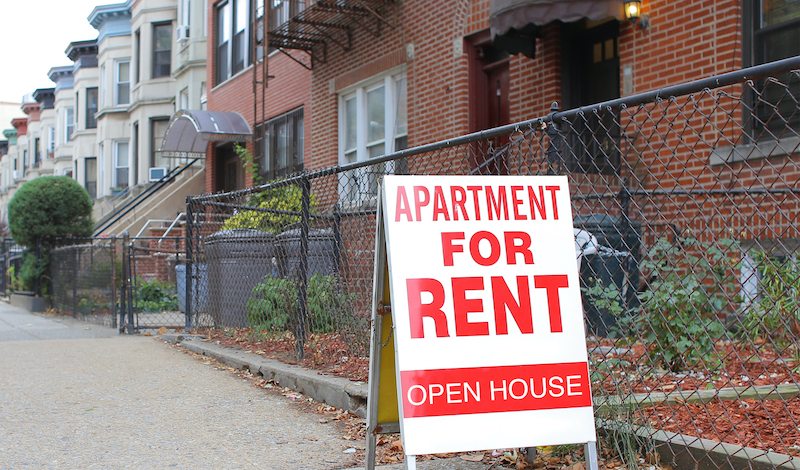
Scholars engage the ongoing debate on rent control regulation amid a global spike in housing costs.
The median rent in Miami increased by 52 percent from April 2021 to April 2022. This spike is no anomaly: Rent prices have been hitting record highs for nearly two years now, with a number of American cities seeing hikes of 20 to 40 percent. The United States is not alone in rising housing costs, as inflation is affecting countries across the globe.
As average incomes fail to keep pace with soaring rent prices, renters in the United States are calling for legislators and regulatory bodies to act. In Europe, renters are echoing these calls. But how can regulators “regulate your rent”?
Enter rent control regulation, which seeks to cap how much landlords can charge tenants. Rent control policy often makes a resurgence when housing prices continually rise in accordance with inflation, as is the case currently.
Although the U.S. Department of the Treasury has been operating the Emergency Rental Assistance Program during the COVID-19 crisis, U.S. rent control regulation usually occurs at the state level. In other countries, such as Scotland and Ireland, rent control policy is implemented at the national level.
Proponents of rent control policy maintain that its ideal goal is to provide stable, affordable housing for the economically vulnerable. But advocates and economists have debated the efficacy of rent control in practice for decades.
Economists across the political spectrum have historically argued against rent control, alleging that it hurts the housing market and makes housing less affordable in the long term. On the other hand, social activists tend to be pro-rent control, claiming that such regulation can help minorities and marginalized groups, who face higher rates of rent hardship.
In this week’s Saturday Seminar, scholars discuss the efficacy of rent control regulation in the United States and abroad.
- In an article published in the International Journal of Housing Policy, Alex Marsh of the University of Bristol and Kenneth Gibb and Adriana Mihaela Soaita of the University of Glasgow discuss the economic research influencing rent regulation policy, which generally finds that rent control is ineffective. They argue that this research draws from only a small number of jurisdictions and that, accordingly, the empirical results are not generalizable with a high degree of confidence. Furthermore, they explain, this evidence base uses simplistic models that rely on strong assumptions, and there are a limited number of rent control studies that use the more sophisticated techniques that can improve the scope of analysis. Because of the nature of this evidence base, they contend, the systematic research pointing to the negative consequences of rent control presents an incomplete picture of the effects of rent regulation.
- According to Hanna Kettunen of the Finnish Institute for Health and Welfare and Hannu Ruonavaara of the University of Turku, Europe appears to be moving toward less stringent regulation of private rental markets. In a recent article in Housing Studies, Kettunen and Ruonavaara examine variations in rent regulation among European countries, as well as the degree to which these programs correlate with the type of welfare regime in each nation. Finding no significant convergence, the authors note that each rent regulation policy’s results depend heavily on context. They recommend further analysis on how national housing regimes have evolved to consider situational factors affecting the social relations of private renting.
- In a forthcoming paper in the New York University Journal of Legislation and Public Policy, Julian M. Hill of Georgia State University College of Law makes a case for commercial rent control. Hill uses New York City’s proposed Commercial Rent Stabilization (CSR) Bill, which aimed to regulate commercial landlords’ ability to rapidly raise rent, as a case study to argue that rent control could provide powerful policy advantages for Black and immigrant commercial tenants. He claims that commercial rent control can combat the displacement of Black- and minority-owned small businesses and nonprofits resulting from gentrification. Hill argues that this displacement prevention not only helps renters themselves, but also promotes community engagement, relationship-building, and employment opportunities in historically vulnerable communities. Although Hill finds that the CSR Bill is a good case study for entry-level displacement prevention, he argues that supplementing it with other politics could improve it for further use. Hill suggests that if the CSR Bill were to adopt practices implemented in Seattle, such as installment plans for back-due rent, rent caps, and rent freezes, the resulting policy would prove most effective.
- In a recent paper, Ruoyu Chen of the University of Windsor, Hanchen Jiang of the University of North Texas, and Luis Quintero of the John Hopkins Carey School of Business explore how New York City’s rent stabilization policies impact different racial groups. Using policy data and New York City Housing and Vacancy Surveys from 2002 through 2017, the authors predicted the quality-adjusted rent discount of each rent stabilized unit in New York City and explained differences based on renters’ race. They argue that, although states may design rent stabilization policies to be racially neutral, their practical impacts can be discriminatory. Specifically, the authors find that racial minorities are less likely than their white counterparts to secure rent stabilized units, and that when they do, their rent reductions are smaller than those of white tenants, regardless of income level.
- In an article published in the UCLA Law Review, Sarah Schindler of the University of Denver Sturm College of Law and Kellen Zale of the University of Houston Law Center discuss the ways in which common law property tools treat renters and homeowners differently. For example, Schindler and Zale explain, states ban many municipalities from implementing rent control and inclusionary zoning, which causes local governments to rely on deed restrictions as a way to provide affordable housing. Deed restrictions, a common law property tool, provide owner-occupied housing to low-income buyers, but many low-income residents cannot afford mortgages or down payments for deed-restricted housing, they explain. Consequently, Schindler and Zale argue, deed restrictions fail to benefit low-income residents that can only afford to rent. Laws that treat renters and owners differently, they contend, have disparate impacts on renters.
- In an article published in Law & Ethics of Human Rights, Stephanie M. Stern of University of Arizona James E. Rogers College of Law explores the concept of “rent control sharing,” a process in which tenants of rent-controlled units rent out their space through homesharing sites such as Airbnb and VRBO. Stern analyzes the ways in which rent control sharing disrupts many aims of rent control, and she argues that rent control sharing undermines overall support for rent control policy. Rent control sharing alters the legal relation between landlord and tenant, she claims, providing the tenant with rights and benefits beyond that of their rent-controlled lease. In addition, Stern finds that rent control sharing allows tenants to monetize their rent-controlled housing and thus distorts and exaggerates the intended redistribution of wealth from landlord to tenant under rent control policy. Finally, she argues that rent control sharing exacerbates existing issues within rent control regulation by increasing tenant mobility rather than stability, discouraging landlords from taking care in maintaining their properties, and worsening existing failures of targeting wealth distribution to those most in need.
The Saturday Seminar is a weekly feature that aims to put into written form the kind of content that would be conveyed in a live seminar involving regulatory experts. Each week, The Regulatory Review publishes a brief overview of a selected regulatory topic and then distills recent research and scholarly writing on that topic.



